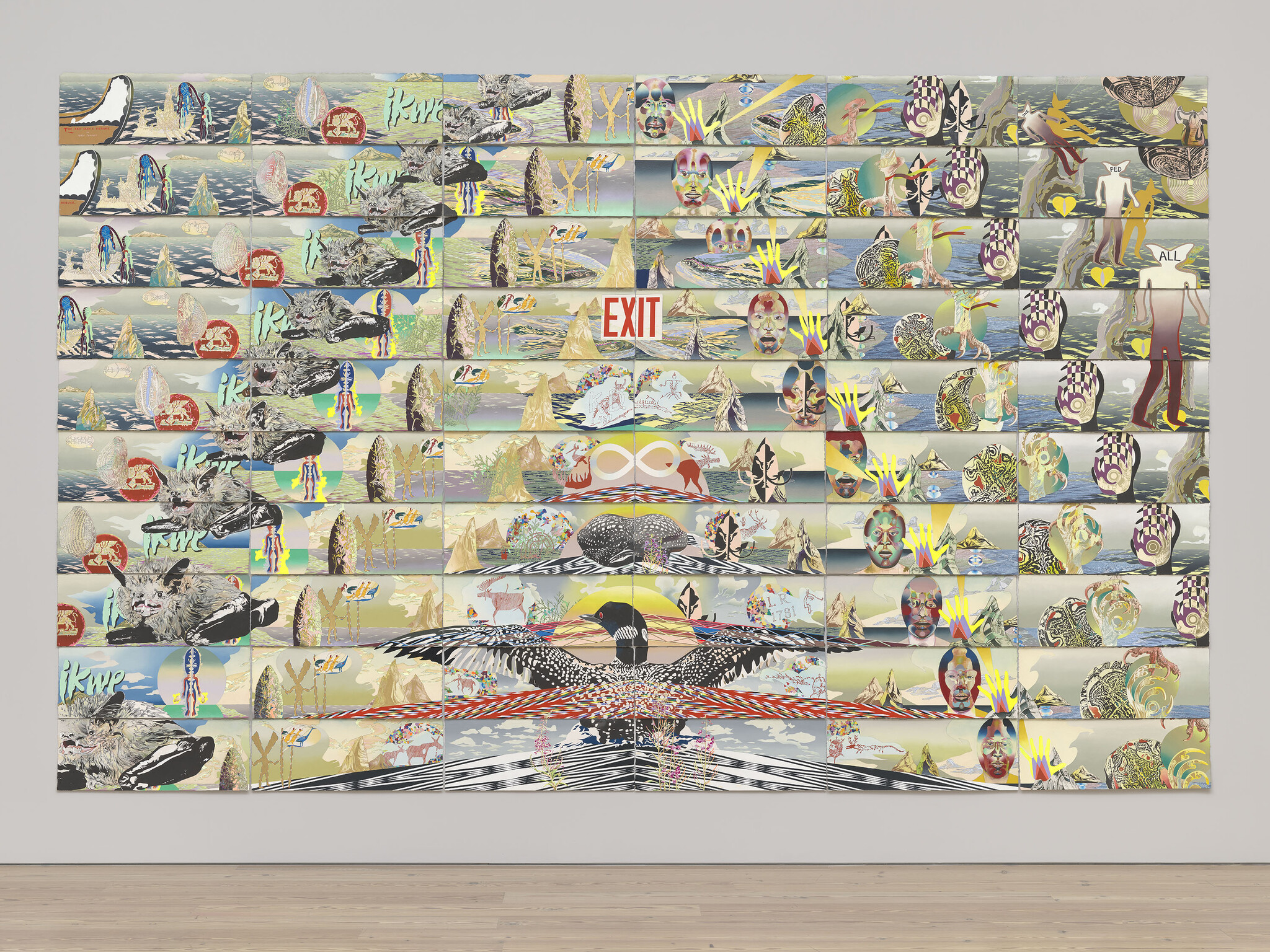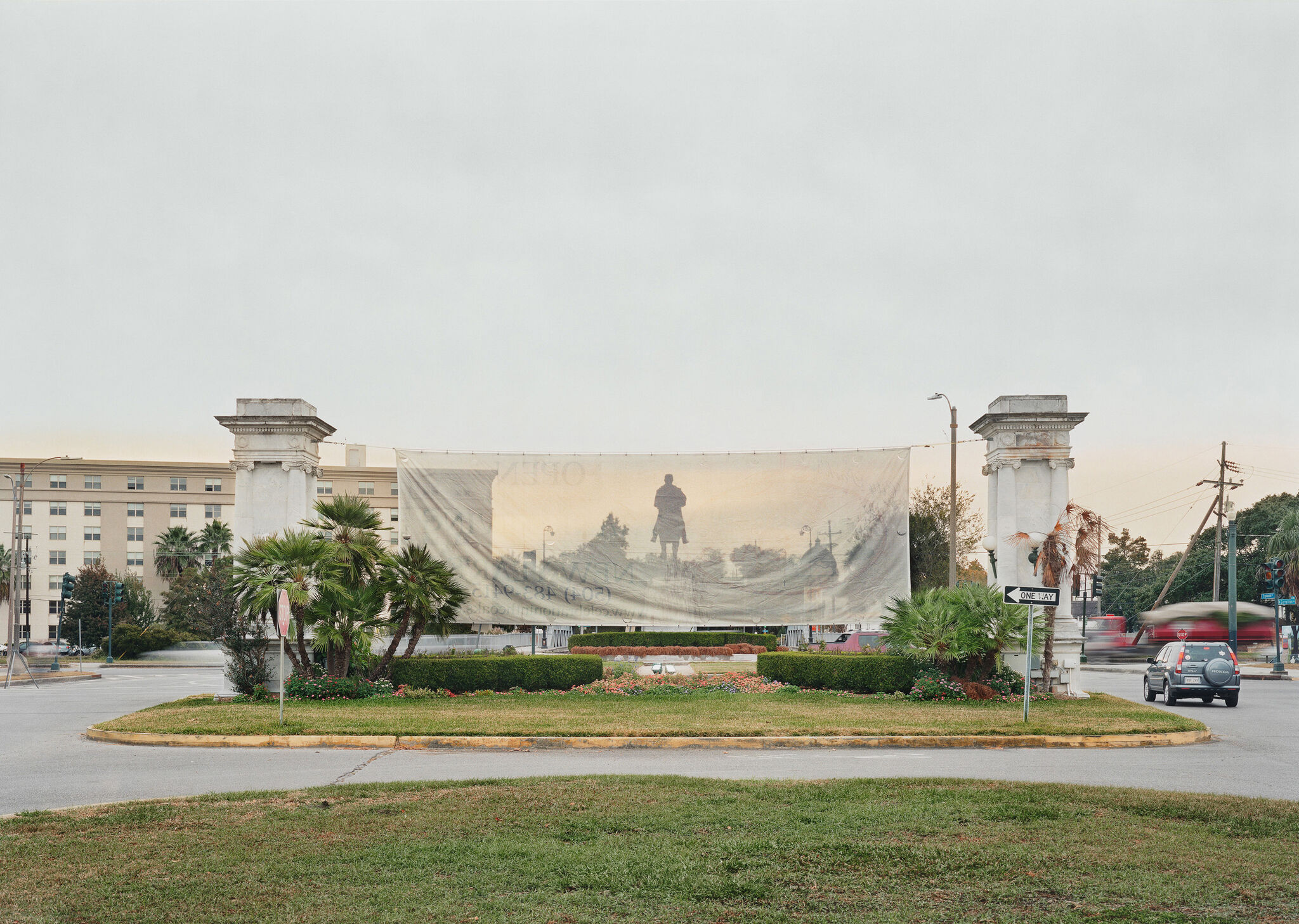Andrea Carlson, Red Exit, 2020
June 8, 2023
0:00
Andrea Carlson, Red Exit, 2020
0:00
Andrea Carlson: My name is Andrea Carlson and I am an artist who is from Chicago, Illinois, and Grand Marais, Minnesota.
Narrator: Carlson describes her work, Red Exit.
Andrea Carlson: At the center is this hard-to-miss loon. And I was thinking of, in the Ojibwe, we have an end-of-the-world story, this flood story where these various animals, these earth divers go to retrieve a bit of earth in order to remake the world on. And all of these animals fail and the muskrat succeeds, but the loon is one of the earth divers that makes an attempt to bring back a piece of the earth. And I put that at the center, these attempts to survive. And then, on whose terms? So the general title of Red Exit is about survival, getting through something very difficult.
I typically work on 400 pound Arches paper, the really heavy watercolor paper. And I use that because I can put oil, I can put ink, I can put gouache, I put pen and all of these different materials on a single surface.
And I work in this very cellular way because I want it to feel like there's a filmic quality almost right out of a movie camera, analog film.
Sometimes when you look from image to image across the page, you can see that they're not quite the same, and I wanted it to feel almost animated, or that any instant of an object is going to look differently.
The title itself, Red Exit, comes from a poem by Gordon Henry, who's an Ojibwe poet. He had made this list of all of these terms that should not be used in American Indian lit. It's kind of a tongue-in-cheek poem, but some of it is very serious. And in this list, he had “red exit” and I decided that maybe if it's not okay for Native lit in a jokey type of way, I was thinking of the idea of there's red exit signs that we see over every door and this idea of refusal to participate or where our agency lies as a tactic for survival. That there's some spaces that we can reserve for ourselves, there are some places that aren't for everyone, and non-participation is an important tactic in some of these really problematic spaces.
In Inheritance.


